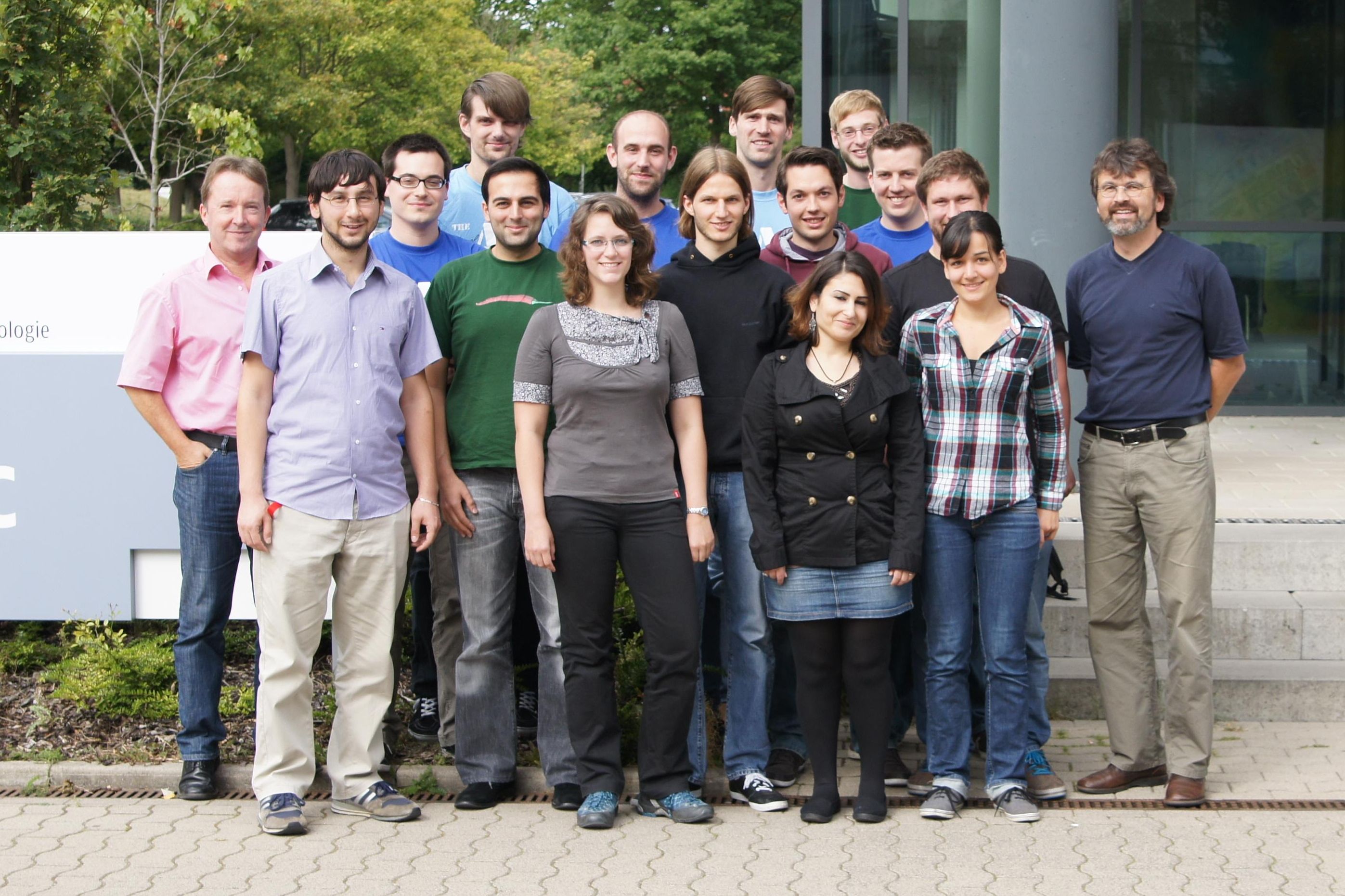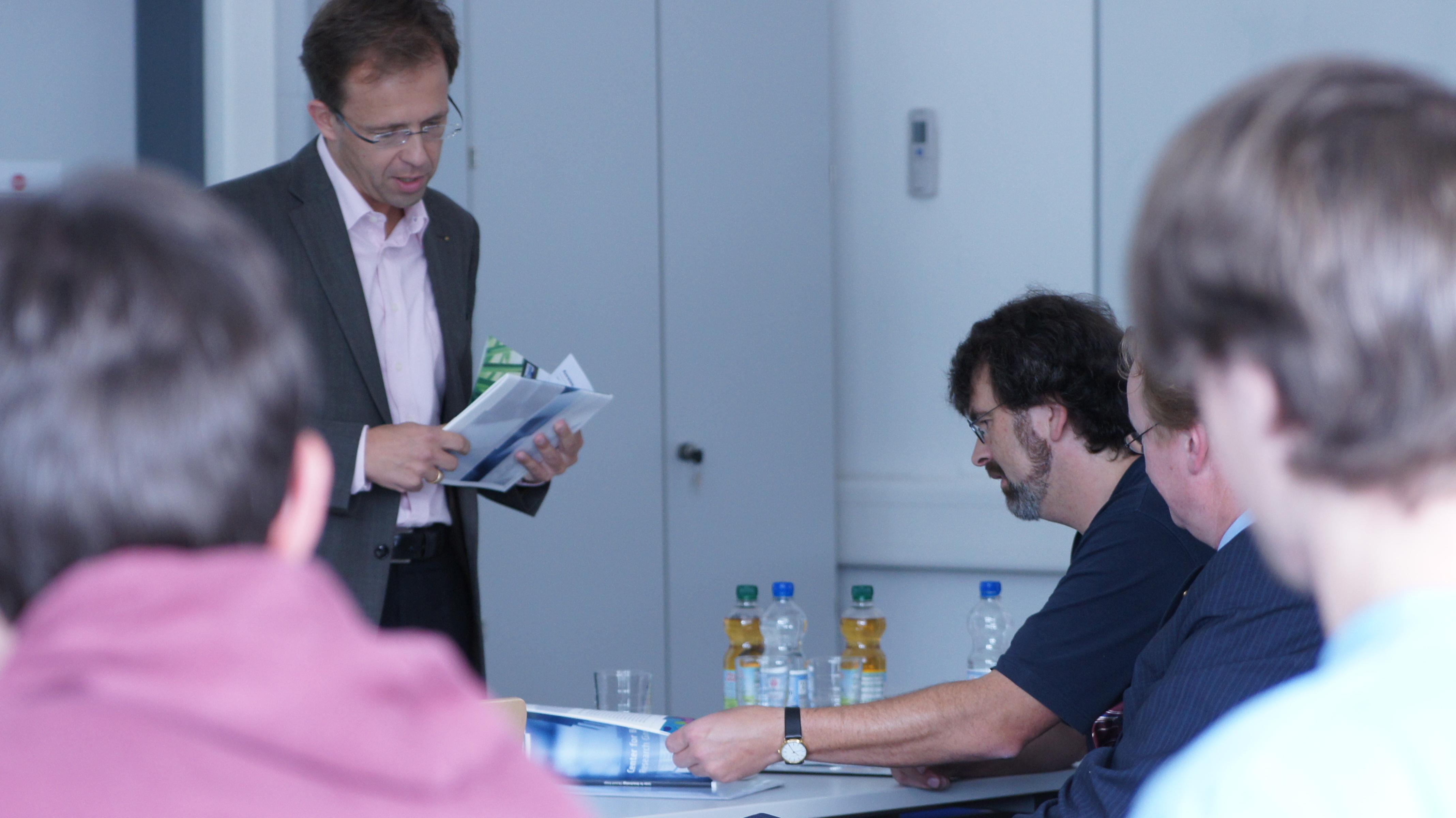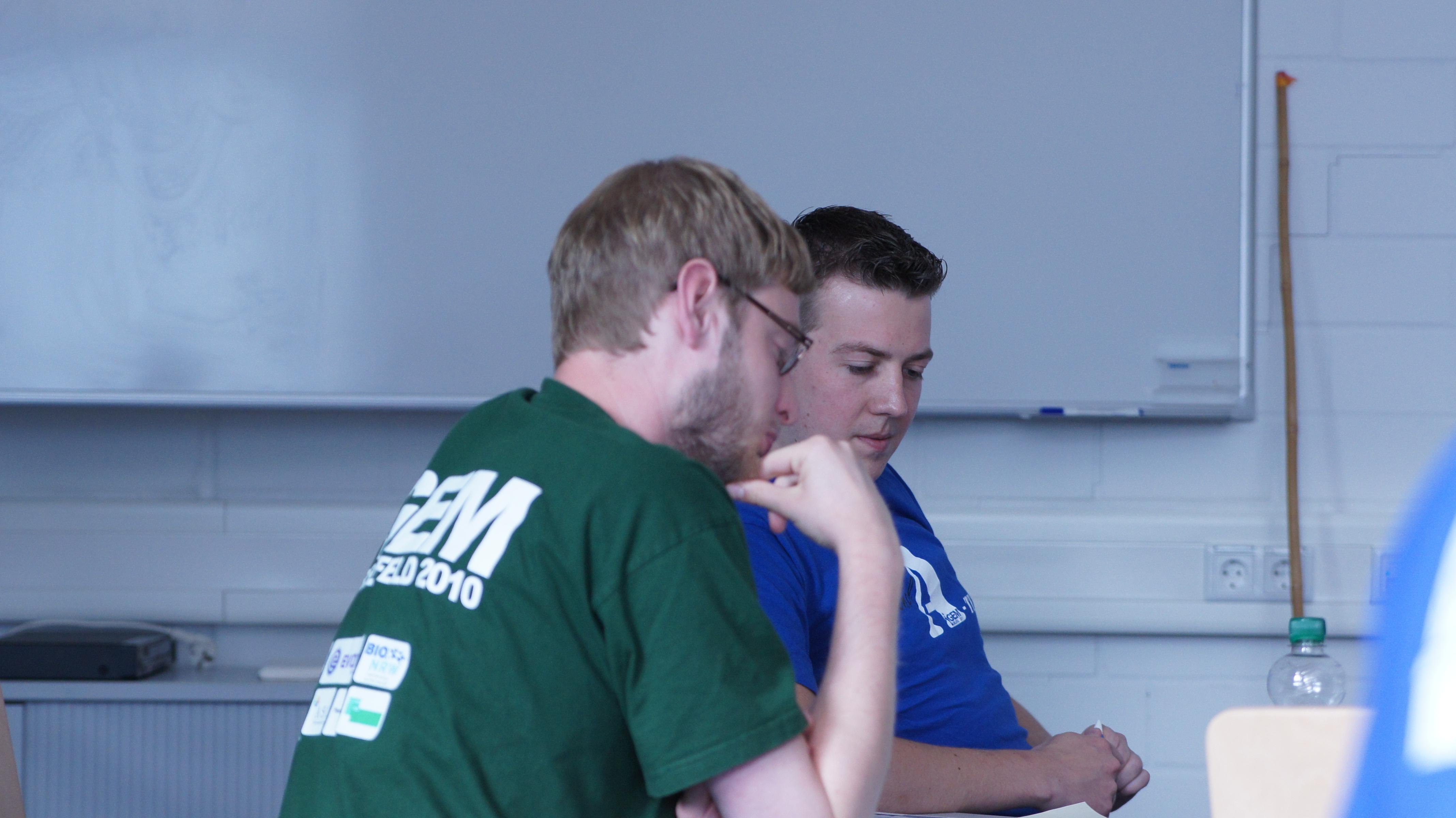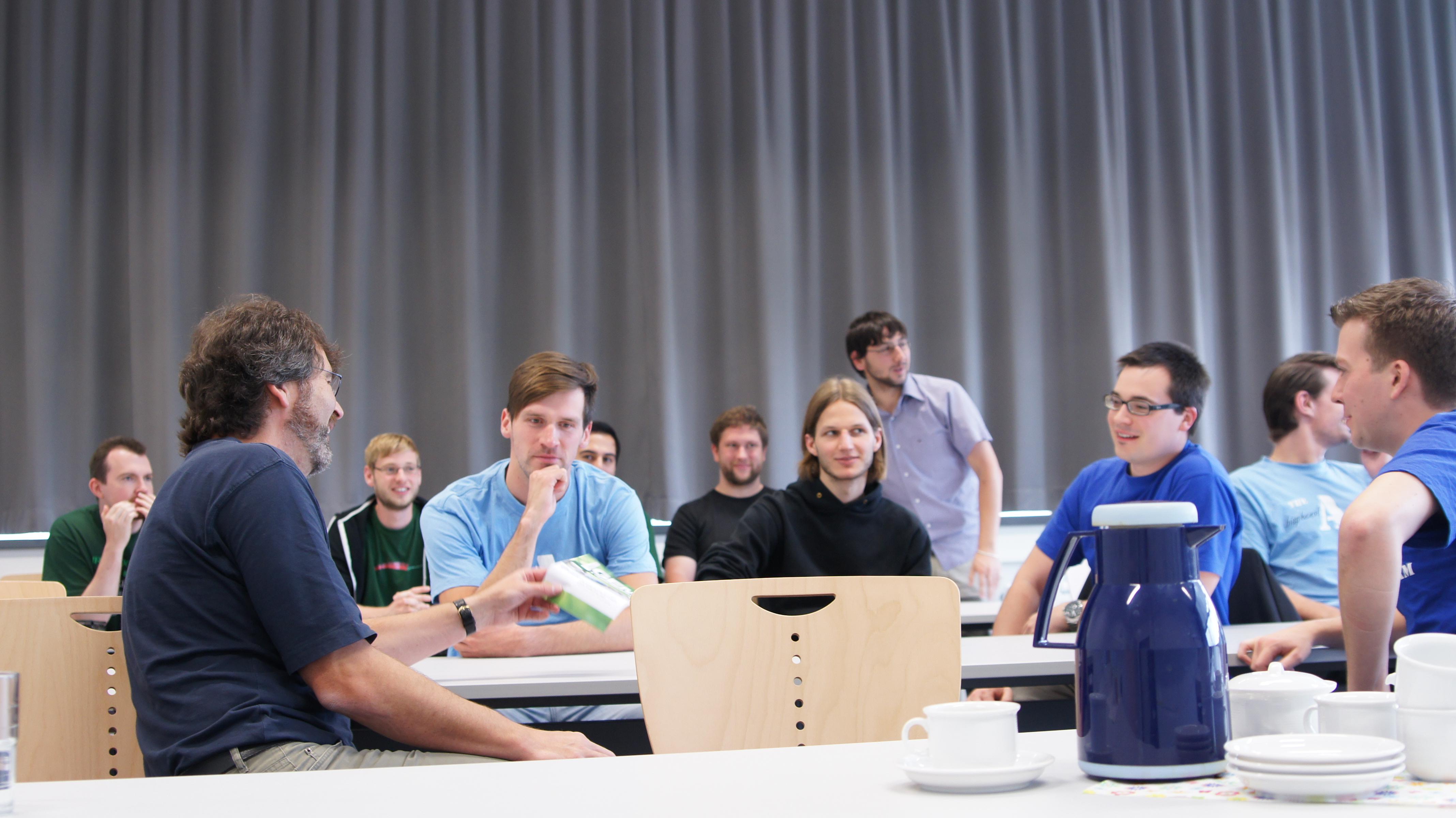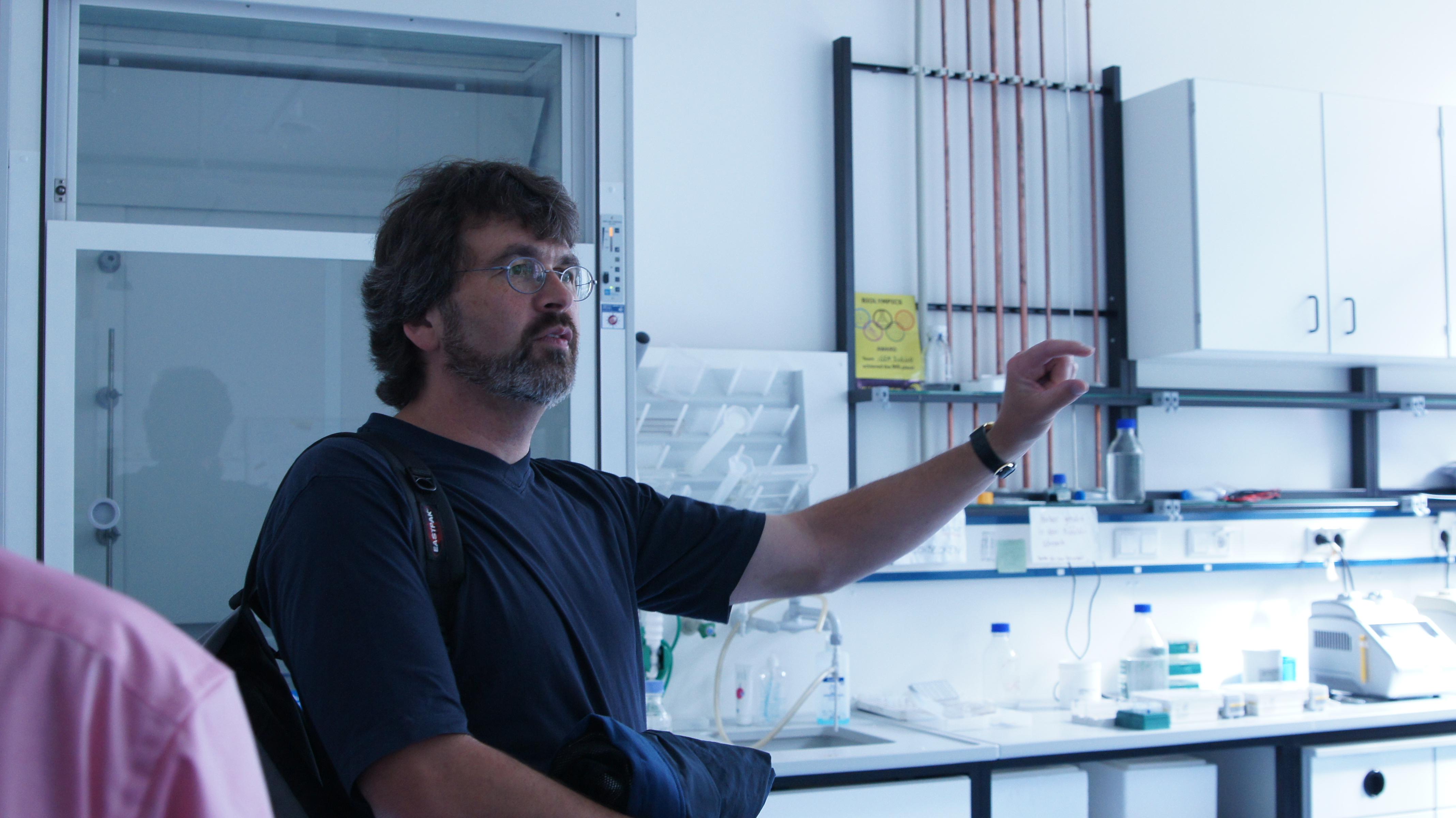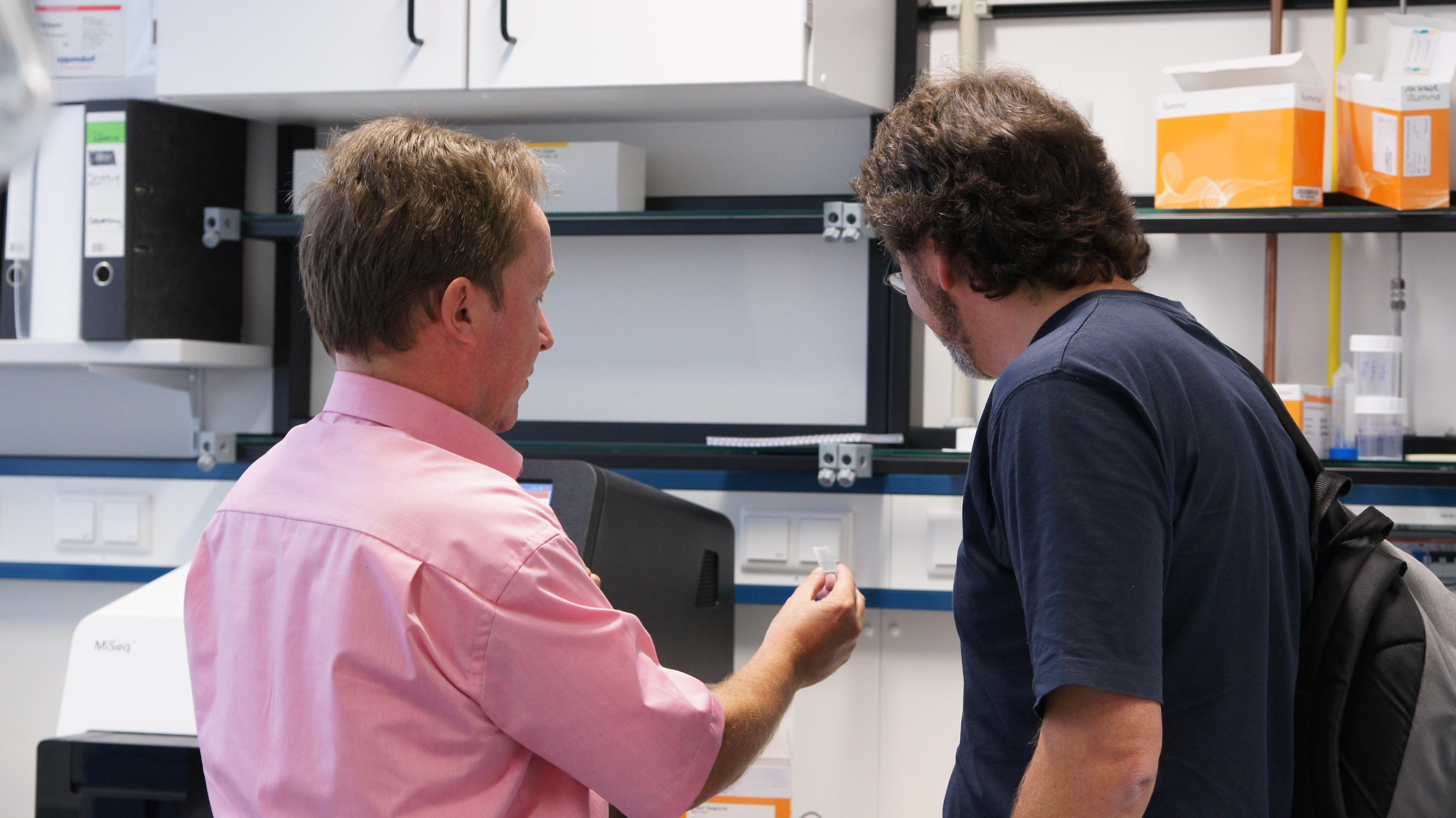Team:Bielefeld-Germany/Human Practices/Politics
From 2012.igem.org

For our Human Practices approach we try to reflect our projects from different points of view. Therefore also the political situation and the readiness of politics to provide a situation, in which our project can be realized. So we invited René Röspel, a member of the german parliament, the “Bundestag” to talk about our project and to discuss about the situation of Synthetic Biology in Germany. Mr. Röspel studied biology and is a member of the Bundestag since 1998. He is or was member of several commissions of the Bundestag, for example the commission for education, research and technological impact assessment and the commission for environment, nature conservancy and reactor safety. Therefore he was the ideal partner to talk about hopes, hypes and fear of Synthetic Biology, about our project, its chances for realization, its advantages, risks and limits compared to conventional methods of waste water treatment.
The meeting started with a short introduction by Prof. Johannes Hellermann, prorector for quality development of Bielefeld University and a presentation by Prof. Thomas Noll, scientific director of CeBiTec (Center for Biotechnology of Bielefeld University). Next we presented the past two and the current project of the iGEM Bielefeld teams.
The central questions of the common discussion are listed below.
Questions
- How easily can bioethic principles be extended to commercial and large-scale applications like waste water treatment?
When it comes to bioethics opinions often differ. Questions about the benefit of bioethics principles arise. How can advantages and disadvantages be estimated and balanced? Are there ecological benefits and is the ecological stability in danger? And how can economic interests be included in a bioethical consideration? We could agree that in the context of iGEM the consequent and strict reflection of the development and the outcome of the project is needed. The expansion of cooperations with other sciences like the humanities, the arts, and the social sciences is necessary as well. The difference between technological possibility and realistic economic alternative has to be drawn, and the risks of intervention in complex natural systems have to be assessed by independent researchers. Reversibility must be possible at any time.
Therefore accompanying ecological research and strict safety requirements is necessary, if a process is expanded to a commercial application. Economic interests are important, too. Are new alternative solutions cost-effective and cost-efficient? How is the impact on industry? Those questions can of course not be solved in the context of iGEM, but need to be considered in commercial, large-scale production.
- Is it possible to run and implement a realistic technological impact assessment when it comes to large, open systems with many independent influencing factors?
- Is controllability given at any time and is it possible to reverse the process and the consequences completely, if necessary?
Influences in open systems often cannot be determined in an appropriate way, because many factors have an impact on the system and thus the influences of a single factor can hardly be described. Due to these difficulties, risk assessment is of highest importance. Accompanying ecological research is essential and substance and material leakage in complex natural systems have to be examined. As mentioned above reversibility must be given at any time. Working with genetically modified organisms in an open system is always highly sensitive because the outcome of working with a biological, self-reproducible system is hardly assessable. Risk assessment for biological systems is very difficult because, unlike in mechanical engineering, stress tests for engineered biological systems cannot be carried out. Also mechanical engineering is easier to understand and the functional principle is, compared to living cells, relatively simple. Evaluation of interference is therefore easier and can be evaluated better. Of course the remaining residual risk must be minimized but cannot be excluded.
Controllability can only be achieved by completely understanding the process and its consequences. This is, of course, one more argument for strong accompanying ecological researches. Natural systems have a high complexity, so complete understanding of every process cannot be guaranteed. Being aware of this fact, strong safety regulations have to monitor every change in the system. Also intensive research can observe weaknesses and unexpected changes before extending the system to commercial large-scale and maybe to open systems. In context of iGEM controllability is given through working in a closed system. If necessary, the process and its consequences can be reversed by stopping the experiments and sterilize all used materials. Also minimizing the risks of genetically modified cells is part of iGEM and Synthetic biology; minimal genomes with defined functions and without unknown parts are an essential part of research and standardized BioBricks are a step towards smaller genomes with well-defined and controllable functions.
- How can the intern Bioethics standards and the technological impact assessment be transferred to DIY-biotech and industries?
Part of iGEM is the sensitization for biosafety and biosecurity as well as risk assessment. So in context of iGEM self-reflection is obligatory. Furthermore the country-specific legislations have to be considered. In Germany tough rules guarantee safety standards. For placing products on the market it is necessary to legitimate plenty of requirements. This led to an increasing awareness about bioethics and safety. One possibility to raise the awareness worldwide would be the transfer of the severeness of German rules and requirements to European or worldwide legislation.
- Is it possible to work open-source and at the same time leading the way to commercial products?
The idea of open-source came across with the rise of the IT branch and the success of Silicon Valley. Regarding to the iGEM competition the idea of open-source is absolutely necessary for the realization of collaboration between the teams and of course for the further development of the IGEM competition. When it comes to academic scientific work, one tries to apply open-source at the universities. Of course cooperating with the industries impedes the idea of open-source, because innovations will be patented with no further use for the whole scientific community. Within the commercial science open-source cannot be practiced at the moment. Solutions for leading to a new patent law and for raising the awareness about open-source cannot be developed by a single iGEM team. But iGEM as a whole maybe can maybe initiate a consideration in patent law and about the most important resource in commercial use: the humans and their innovation potential.
- What is synthetic in Synthetic Biology? Are the products of Synthetic Biology already artificial life?
In our opinion up until now only copies of nature have been used in Synthetic Biology, they may be modified and synthesized, but the functional principle is based on nature. The sequences used can of course be synthesized, but all of them have a natural source and are only modified and adapted to organisms and special demands. Consequently Synthetic Biology may use synthetic compounds but the products are variations of nature, not artificial life.
To define where natural ends and artificial starts is a sensitive and controversial topic of its own and it’s not our hand to give a universal definition.
- How can cooperation and information between science and public be improved?
In the last 50 years many things have been done wrong in Germany concerning the information of the public. This led to overall denial of biotechnology without reflection in the eighties. Commercial production of biotechnological products was outsourced to other countries. Consequently in Germany a decisive risk and technological impact assessment had been developed. Strict regulations enforced responsible research and responsible commercial use of biotechnological products. But all this was not transmitted to a broader public. Prejudices and anxiety for biotechnology remained and increased. Therefore we try to communicate the idea of Synthetic Biology, iGEM and of course our project to the public. Risk assessment and admitting limitations as well as talking about what we do not know are an essential part of this interaction. We also try to inform about new projects like the development of new cheap, energetically favourable and environmentally friendly bio-energy systems to show the potential of this new field of science. During our iGEM participation we experienced a wide acceptance in the media and many positive reactions of the public. We think that the trust in young scientists, who are not industry-driven and try to solve actual problems with unconventional solutions and common sense, is constantly increasing. Our application-oriented projects also helped to communicate our point of view and our goals. And of course trying to make the world a better place always gets acknowledged.
| 55px | | | | | | | | | | |
 "
"






